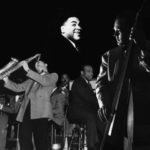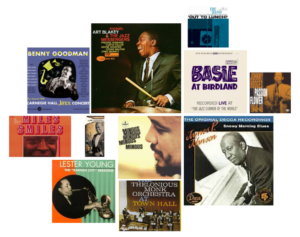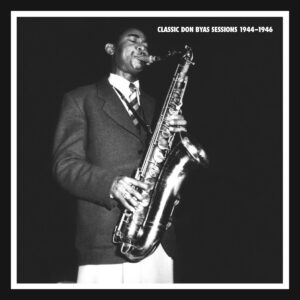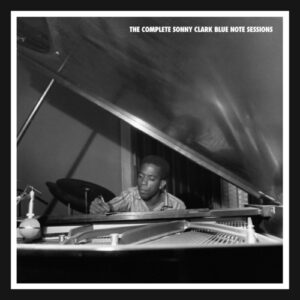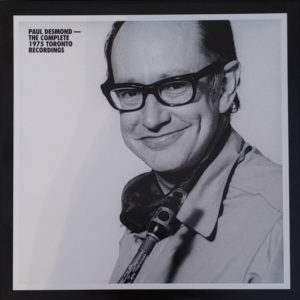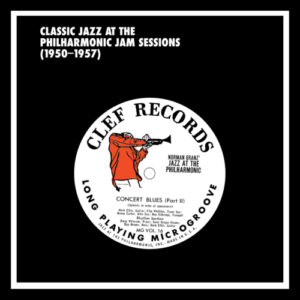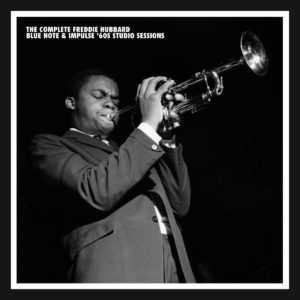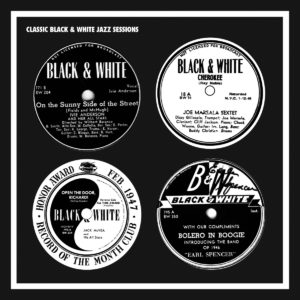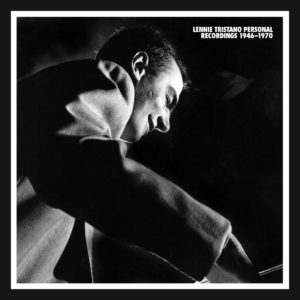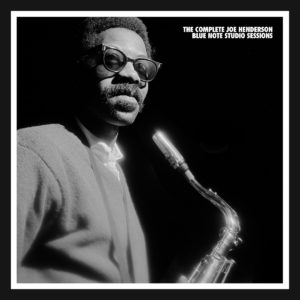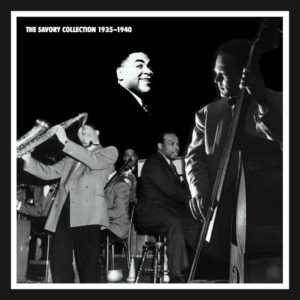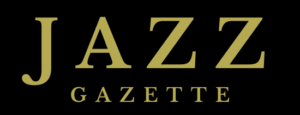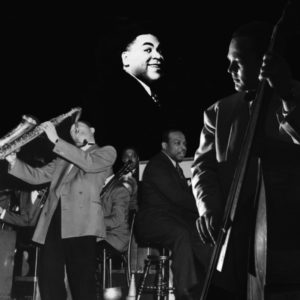Joe Pass
"Joe could play the melody, add the chords and make the fills. That had never been done before quite the way he did it." - Joe Diorio
The 1960s were the decade that Joe Pass’ talent was first recognized to any significant degree. His recordings for the Pacific Jazz label, owned and operated by Dick Bock, brought Joe Pass to the attention of the jazz world at large. From 1961 – 1967, Bock recorded Pass in many situations – most substantial and a few questionable. Although Joe Pass’ Pacific Jazz work seldom achieved great sales figures. at least one album “For Django” outlived its time and went on to become an undisputed classic. Pacific Jazz was the springboard for Joe Pass into the big leagues of jazz.
Pacific Jazz & Dick Bock
In 1960, without a guitar of his own and 13 cents in his pocket, Joe Pass checked himself into Synanon, the rehabilitation facility for drug abusers. It was an act that saved his life. Pass wasn’t the only jazz musician at Synanon. Many Los Angeles jazz musicians like saxophonist Bill Perkins and guitarist John Pisano would visit their friends in the facility for weekend jam sessions. It was at Synanon that Joe Pass would meet his first patron.
Dick Bock had done some A & R and promotion work for Discovery Records while he was a student at Los Angeles City College. In the Fall of 1952, with less than $400, Bock launched Pacific Jazz Records. It became one of the important labels documenting the flourishing west coast jazz scene. Aside from being a businessman, Bock was also a socially conscious man.
In the spring of 1961, Joe Pass, pianist Arnold Ross and others took part in a recording for Pacific Jazz called SOUNDS OF SYNANON (PJ-48). Soon, Bock was telling people about the great new guitarist he’d found. The album garnered Pass the New Star award in Down Beat’s 11th Annual Critic’s Poll. Bock signed Pass to a contract and for the next six years, he challenged Joe Pass in many novel ways. Journalist Howard Lucraft, who has chronicled L.A. jazz for the past 45 years, notes that Bock “was a very positive person and knew exactly what he was doing. He took note of the ability and individuality of each musician and tried to use those things in interesting ways.”
Joe Pass all but grew another arm when he began working with guitarist John Pisano sometime in 1963. Their relationship led to Joe Pass’ first working band and the recording of FOR DJANGO and would continue intermittently for the rest of his life.
Django
September 1964
Joe Pass (g), John Pisano (rhythm g), Jim Hughart (b), Colin Bailey (d)
Mention Joe Pass and Pacific Jazz in the same breath to anyone knowledgeable enough to know of the connection and the first thing you’ll probably hear is something superlative about For Django. The album pays homage to Django Reinhardt not by recreating the recordings of the Quintet of the Hot Club of France but by Joe Pass and company giving a good accounting of themselves on material associated with the Belgian gypsy.
For Django was the first time Bock let Joe Pass call his own shot. “When it was announced,” Hughart recalls, “we thought, ‘Alright! Let’s get at it!’ We were all fairly familiar with Django’s music and the tunes that he wrote. Pisano researched it and came up with copies of the tunes and brought them to the session.” Pisano adds, “For Django was a lot more harmonically interesting than the Williams but we still needed to alter chords and make updates.
We worked out some parts together on Django that really worked. The arrangement was in our heads and we wanted to play harmonies that were compatible with the melody in certain sections.” Joe Diorio evaluates the album as “fresh and kind of unique at the time. It was melodic and cooking with beautiful solos and ideas.”
An accomplished jazz musician himself, Pisano took it upon himself to be Joe Pass’ rhythm guitarist. Guitarist Joe Diorio, who taught with Joe Pass, clarifies their relationship: “Johnny is just as accomplished as Joe; he’s got the technique to play the chords and the lines and everything. Joe loved Johnny and Johnny had to love Joe to play the role that he did.” Pisano’s ability to find music scores and sketch out lead sheets was invaluable to Pass, who referred to the former as his “idea man.” Pisano modestly assesses himself: “I’m known for my accompanying and Joe liked what I did.”
The album has been reissued many times and seems to be a bit of a badge for the participants. Bailey attests to this: “Young guitarists like Howard Alden and Al DiMeola all know of me and think I’m a big deal because I played on For Django.” Hughart agrees. “The album,” he posits, “seems to be part of the basic library of most musicians I know of, whether or not they’re guitar players.”
John Lewis’s haunting Django fittingly inaugurates the album. It’s a beautiful combination of composition, arrangement and ensemble. Hughart is more prominent in the audio mix and it makes a big difference. It’s immediately clear that this is an ensemble, not a soloist and his rhythm section.
Joe Pass was born January 15. 1929 in New Brunswick, New Jersey. He grew up in Johnstown, Pennsylvania where his father worked in a steel mill. The boy’s imagination had been captured by a Gene Autrey movie. Accordingly, for Joe Pass’ ninth birthday his father brought home a S17.00 Harmony guitar. Determined that his son does not follow him into manual trades, his father demanded adherence to a strict practice schedule for Joe Pass. Six hours each day – Joe Pass worked on the guitar for five years. As an adult when Joe Pass spoke of the regimen, he tersely acknowledged “l hated it.”
During the 1950s, Joe Pass could often be found in Las Vegas, where he played in show bands and lounge trios. Pianist Frank Strazzeri lived there from 1954 to ‘57. Joe Pass, like many musicians, sat in with him. “I had a trio job at a small club called the Black Magic,” Strazzeri recalls. “When Joe came around he’d sit in the corner, over in the dark practically, and just play very quietly. Even then, I don’t think he had any limitations as a player. I’d play off-the-wall-tunes that I knew he didn’t know. But, come time for him to play, he’d play ’em beautifully and in any key. He could just hear it and he’d have it. And play the changes the right way too.”
During this laboratory period, Joe Pass was hammering out a personal style. He was playing single-note lines that were rooted in the Charlie Christian mode. In Joe Pass, though, that impulse was filtered through the rapid-fire playing of Parker, Gillespie, Haig and the other bebop horn players and pianists. Joe Pass also had chordal roots in Reinhardt but he’d paid close attention to the more modern, bop-inflected harmonies of guitarists like Jimmy Raney, Tal Farlow and Barney Kessel.
In 1967 and ’68, Pass played in the TV studio band for The Woody Woodbury Show, led by pianist Mike Melvoin. Joe Pass, according to Melvoin, “was extremely fast with new material. He could have been a great studio player. I talked to him a couple of times about doing it full time but he wasn’t really interested. He saw himself as a jazz musician and didn’t want to be a generalist.”
Melvoin also remembers a special guest on the Woodbury Show. “Wes Montgomery was on the show one time,” he recalls. “Woody asked Wes who his favorite guitarist was. Wes pointed to Joe Pass and said, ‘He’s sittin’ right over there in your band.’”
In January of 1994, at what became his final recording session, Joe Pass briefly got philosophical. “People always ask me where my music comes from and for years I used to say Gene Autry as a joke, because nobody in my family played a thing. So I just went on playing guitar all these years without thinking where it comes from. In the last couple of years I’ve realized that my playing is a gift from God.”
Amen. – Kirk Silsbee, liner note excerpt Mosaic Records
An Evening With Joe Pass
In this 90 minute video, Joe Pass is interviewed about his playing techniques, interplay with musicians and a 1994 trio concert with Bob Magnusson on bass Joe Porcaro playing drums.
01. Opening [00:00]
02. Rehearsal [05:30]
03. Interview With Joe [13:35]
04. Right Hand Technique [17:56]
05. Accompanying Other Musicians [18:47]
06. Playing With Piano Players [24:55]
07. THE CONCERT [29:43]
08. “Satin Doll” [31:10]
09. “You Don’t Know What Love Is” [38:50]
10. “Stella by Starlight” [44:46]
11. A Lesson With Joe [47:35]
12. “Joe’s Blues” [1:05:57]
13. “All the Things You Are” [1:14:30]
14. “Solo Piece” [1:21:20]
15. Conclusion [1:24:22]
Joe Pass
Selected Jazz Albums
By Scott Yanow
The Complete Pacific Jazz Joe Pass Quartet Sessions (Mosaic)
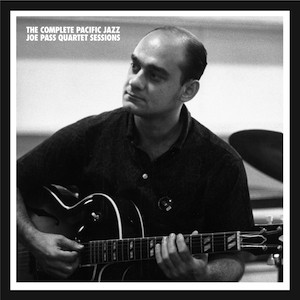
JOE PASS. YOU CAN FOCUS ON HIS TECHNICAL MASTERY, AND MISS HALF THE STORY – HIS MUSICALITY.
The flowing lines and harmonic complexities of bebop are daunting on any instrument, but they particularly challenge guitar players. Not so Joe Pass, who went the beboppers one better; by finger picking, he figured out how to fill and add bass notes as well as solo. In other words, he could do it all self-contained.
But Pass’ skill wasn’t just in his ability to move dexterously around the fingerboard. The truly extraordinary aspect of his playing was how musical it all sounded. Pass’ improvised solos were often crafted well enough to have been melodies in and of themselves.
Bad habits, and the odd gigs he worked to fuel them, kept him in obscurity until his thirties. Only then — with his appearances on Pacific Jazz records with the cream of the L.A. crop — were Pass’ gifts revealed. Today, at least one of those LPs (“For Django”) is considered a must-have in any jazz library. The new Mosaic collection of his Pacific quartet sessions lays out the full range of what this gentle, self-effacing musician could do.
Rigorous Practicing
Born in 1929, Pass grew up the oldest of five children, son to a Johnstown, Pennsylvania steel worker. Music was to be his escape from manual labor, decided his dad, who set up a rigorous six-hour-a-day practice regimen for the boy.
Perhaps because guitar stayed in the background for so much of jazz’s history – relegated to the quietest corners of the rhythm section until amplification came along – few leaders on the instrument existed for Pass to idolize. His early heroes were horn players (Coleman Hawkins, Lester Young) and pianists (Art Tatum, Al Haig).
A gig with Ray McKinley got him to New York in 1949 where he became a jam session regular and a drug addict with an erratic career path. The fifties were lost years, playing strip joints in New Orleans or lounges in Las Vegas between hospital stays for his addiction.
Finger picking was one result of Pass spending so many years knocking around. Using all his fingers instead of a pick – filling chords and providing his own bottom support — allowed him to make up for the inadequacies of his band mates. His style, born out of necessity, later would be recognized as proof of his strong sense of harmony and sensitivity regarding accompaniment.
Pass Finds a Home
It wasn’t until Pass decided to go straight and entered Synanon where Pacific Jazz discovered him in 1962 that he finally began getting the exposure and recognition he deserved. He guested with Pacific Jazz regulars Richard “Groove” Holmes, Les McCann, Gerald Wilson and Bud Shank before getting a date of his own.
This set includes his “Catch Me!” LP with Clare Fischer, Ralph Pena and Larry Bunker or Albert Stinson and Colin Bailey (8 unissued tunes from those sessions are added), Les McCann’s “On Time” and “Soul Hits” LPs with 2 unissued tracks from each, “12-String Guitar Movie Themes” and “For Django” (with 3 unissued tracks) by his quartet with fellow guitarist John Pisano, his live “Joy Spring ” album with 4 more tracks and newly discovered Pass sessions (one backed by the McCann trio, another with his drummerless 1964 working group with Pisano and Frank Strazzeri and a third with the “For Django” band playing Hank Williams tunes!).
Always clean, articulate, and effective, Pass also had unstoppable swing and an ability to create memorable, beautifully-constructed solos.
The 5-CD set includes a complete discography, a full essay by Kirk Silsbee and many rare photographs from the actual sessions and the era.
For the purposes of this discography, only first U.S. issue of each track is given.
(A) Joe Pass (g, ac g-1), Clare Fischer (p, org-2), Ralph Pena (b), Larry Bunker (d).
(Pacific Jazz Studios) LA, January 30 ,1963
Catch me (Forward Pass) PJ single
Days of wine and roses-1, 2 –
You stepped out of a dream PJ ST-73
But beautiful-1 – _________________________________________________________________
(B) same as (A):
(Pacific Jazz Studios) LA, February 4,1963
Mood indigo PJ ST-73
It’s all right with me, previously unissued
Deep purple-1 – ___________________________________________________________________
(C) probably same as (A):
(Pacific Jazz Studios) LA, probably February, 1963
Tangerine-1 previously unissued
There Will Never Be Another You-1 –
Bags’ Groove –
There Is No Greater Love –
The Night Has A Thousand Eyes – __________________________________________________________________
(D) Joe Pass (g), Clare Fischer (p, org-1), Albert Stinson (b), Colin Bailey (d).
(Pacific Jazz Studios) LA, July 18, 1963
No cover no minimum PJ ST-73
Just friends-1 –
Walking up –
Peri’s Scope previously unissued ______________________________________________________________________
(E) same as (D):
(Pacific Jazz Studios) LA, July 19, 1963
Catch me-1 PJ ST-73
Summertime –
Falling in love with love -1 – _______________________________________________________________________
(F) LES McCANN Joe Pass (g), Les McCann (p), Leroy Vinnegar (b), Ron Jefferson (d).
(Pacific Jazz Studios) LA, July-August, 1962
On Time PJ ST-56
Yours Is My Heart Alone –
This For Doug –
Fondue –
Bernie’s Tune –
Maichen –
It Could Happen To You –
You’re Driving Me Crazy –
So What –
The Other Way previously unissued
Free At Pass…Thank God Almighty…Free At Pass –
NOTE – The piano introduction on “This for Doug” was not used on the original album. ________________________________________________________________________
(G) Joe Pass (g), Les McCann (p), Herbie Lewis (b), Paul Humphrey (d).
(Pacific Jazz Studios) LA, March 28, 1963
These Foolish Things previously unissued
Joe’s tune (samba) –
Stragler –
Simon Potter –
Catch Up (Forward Pass) –
NOTE: A version of “Why don’t you do right?” may have been recorded at this session, but no tape has survived. ________________________________________________________________________
(H) LES McCANN Joe Pass (g), Les McCann (p), Paul Chambers (b), Paul Humphrey (d).
(Pacific Jazz Studios) LA, October 29, 1963
Back At The Chicken Shack PJ ST-78
Sack O’ Woe –
Groove Yard –
Groove Yard (alt tk) previously unissued
Sonnymoon For Two PJ ST-78
Shiny Stockings – ______________________________________________________________________
(I) same as (H)
. LA, October 30, 1963
Sermonette PJ ST-78
Bags’ Groove –
Sister Sadie –
Li’l Darlin’ –
Work Song –
Blue “n Boogie previously unissued ________________________________________________________________________
(J) Joe Pass (12-string g), John Pisano (rhythm g), Charlie Haden (b), Larry Bunker (d)
(Pacific Jazz Studios) LA, March 12, 1964
Charade WP ST-1822
Call Me Irresponsible –
How The West Was Won –
Wives And Lovers – ________________________________________________________________________
(K) same as (J): LA, March 19, 1964
Sunday In New York WP ST-1822
Love With The Proper Stranger –
Love Theme Of Tom Jones –
Manha De Carnaval – ________________________________________________________________________
(L) same as (J): LA, March 20, 1964
Lawrence Of Arabia WP ST-1822
Fall Of Love –
It Had Better Be Tonight –
More – ________________________________________________________________________
(M) Bill Perkins (ts-1, bari-2, fl-3), Joe Pass (g), John Pisano (rhythm g), Frank Strazzeri (p), Jim Hughart (b).
(Pacific Jazz Studios) LA, June 1, 1964
tk.5 I Believe In You-1 previously unissued
tk.4 It’s A Wonderful World-2 –
Hello Dolly-1 –
Summer Night -3 –
tk.7 The Sweetest Sound-1 – _____________________________________________________________________
(N) Joe Pass (g), John Pisano (rhythm g), Jim Hughart (b), Colin Bailey (d).
(Pacific Jazz Studios) LA, August 13,1964
Jambalaya previously unissued
Cold Cold Heart –
You Win Again –
Hey Good Lookin’ – ____________________________________________________________________
(O) Joe Pass (g), John Pisano (rhythm g), Jim Hughart (b), Colin Bailey (d).
(Pacific Jazz Studios) LA, September 2,1964
Django PJ ST-85
Rosetta (alt tk) previously unissued
Rosetta PJ ST-85
Nuages –
For Django –
Night And Day – ______________________________________________________________________
(P) same personnel and location:
(Pacific Jazz Studios) LA, probably September 18,1964
Fleur d’Ennui PJ ST-85
Insensiblement –
Cavalerie –
Django’s Castle (Manoir De Mes Reves) –
Limehouse Blues (alt tk) previously unissued
Limehouse Blues PJ ST-85
from session O or P:
Georgia On My Mind previously unissued ___________________________________________________________________
(Q) Joe Pass (g), Mike Wofford (p), Jim Hughart (b), Colin Bailey (d).
(Encore Theatre) LA, February 6, 1964
Joy Spring BN LT-1103
Some Time Ago –
The Night Has A Thousand Eyes –
Relaxin’ At Camarillo –
There Is No Greater Love –
Bags’ Groove previously unissued
Some Time Ago (alt tk) –
The Night Has A Thousand Eyes (alt tk) –
There Is No Greater Love (alt tk) – __________________________________________________________________
Album index
Pacific Jazz ST-56 Les McCann – On Time
Pacific Jazz ST-73 Joe Pass – Catch Me
Pacific Jazz ST-78 Les McCann – Soul Hits
World Pacific WP-1822 Joe Pass – 12-String Guitar Movie Themes
Pacific Jazz ST-85 Joe Pass – For Django
Blue Note LT-1103 Joe Pass – Joy Spring
Original sessions produced by Richard Bock
Produced for release by Michael Cuscuna
Recording engineers: Richard Bock and Dino Lappas
Tape transfers by Malcolm Addey and Jay Ranellucci
Sessions A, B, the first two tunes of C, the second and eighth tunes of F and session Q were transferred from the original stereo masters.
All other sessions remixed from the original three-track masters by Malcolm Addey
Mastered using 24-bit analog-to-digital resolution by Malcolm Addey
Special Thanks to Les McCann, Clare Fischer, John Pisano, Russ Wapensky and the Institute of Jazz Studies.
Masters appear courtesy of Blue Note Records, a division of Capitol Records, Inc.
This compilation (p) 2001 EMI-Capitol Music Special Markets. Product of EMI-Capitol Music Special Markets, 1750 N. Vine Street, Hollywood, CA 90028. All rights reserved. Unauthorized duplication is a violation of applicable laws. Printed in the U.S.A.
© 2001 Mosaic Records, L.L.C., 35 Melrose Place, Stamford, CT 06902. All rights reserved.
Phone: 203-327-7111/Fax 203-323-3526/ Web site: www.mosaicrecords.com.
Producer’s note:
This set contains all of Joe Pass’s sessions as a leader during 1963 and ’64. Because his unissued March 28, 1963 session (G) finds Pass supported by Les McCann’s trio, we’ve expanded the scope to include the guitarist’s other two recorded encounters with that trio, both of which were done under Les’s leadership and heavily feature Pass.
We taken liberties with the chronology of the sessions in two places so that the “Catch Me!” sessions and the live session can each be contained on a single CD.
Joe Pass’s post-1964 albums for the label (“A Sign Of The Times”, “The Stones Jazz” and “Simplicity”) are commercial ventures in larger musical settings. Their jazz content is minimal and therefore, they are not included here. As with many Pacific Jazz tapes, there are odd edits here and there which were executed on the original master tapes and occasional dropouts.
Sounds of Synanon (Pacific Jazz):
Joe Pass made his first significant recordings in 1962, the year that he began his musical relationship with producer Dick Bock and the Pacific Jazz label. Sounds Of Synanon was recorded with fellow Synanon patients; the only other member of the septet to make it in jazz was pianist Arnold Ross (who was a veteran of the 1940s). On this important album, Joe Pass performs seven group originals (he contributed “C.E.D.” and “Hang Tough”) and already sounds recognizable.
During his Pacific Jazz period, which lasted until 1968, Joe Pass worked regularly on the West Coast and recorded as a sideman with the Gerald Wilson Orchestra, Les McCann, Bud Shank, Clifford Scott, bluesman Bumble Bee Slim, Clare Fischer, Bill Perkins, and Groove Holmes in addition to being on an album with Johnny Griffin for the Riverside label.
Virtuoso (Pablo):
Throughout the 1960s, the formerly inactive Joe Pass kept busy. He worked in television orchestras, played with Louie Bellson, Carmen McRae, Sarah Vaughan and Joe Williams, and was a member of the George Shearing Quintet during 1965-67.
His later recordings for the Pacific Jazz label became victims of Dick Bock’s need to keep his struggling label a float. 1965’s A Sign Of The Times finds Joe Pass playing current pop tunes (such as “What Now My Love” and “It Was A Very Good Year”) while backed by an orchestra arranged by Bob Florence. Potentially more bizarre is The Stones Jazz which has Joe Pass performing ten songs that were associated with the Rolling Stones. Very few guitarists sounded less like a rock player than Joe Pass, but he handles this odd assignment by treating most of the tunes as the blues that they actually were.
In 1969 for his Guitar Interludes album for Discovery, there are six numbers that have him for the first time on record functioning as an unaccompanied soloist, but five are ballads and one is a blues (other tunes are with voices and a rhythm section) and these are fairly typical of what one expected of solo guitarists up to this point.
Everything changed in 1973, Producer Norman Granz, who had recently started his Pablo label, considered Joe Pass to be his biggest discovery of the era. Joe Pass had begun playing unaccompanied solo concerts, and Granz encouraged him in that direction.
1973 was already becoming a big year for Joe Pass. He made his Pablo debut playing in a quartet with Duke Ellington (recording Duke’s Big 4) where he impressed and inspired Ellington. In addition to working with the Benny Goodman Septet, he recorded with Oscar Peterson and Niels-Henning Orsted Pedersen in a trio, was in a two-guitar quartet with Herb Ellis at that year’s Concord Jazz Festival (which resulted in the first two releases on the Concord label), and recorded the first of his six duet albums with Ella Fitzgerald (Take Love Easy) for Pablo.
But his unaccompanied Virtuoso album had the biggest impact. On a dozen numbers including “Cherokee,” “How High The Moon,” “Have You Met Miss Jones,” “All the Things You Are,” and “The Song Is You,” Joe Pass displayed his superb technique, swinging style, and ability to be a complete band all by himself. This album alone would have cemented his place as one of jazz’s greatest guitarists.
Virtuoso #2, #3, #4, At Akron University, Montreux ’75, I Remember Charlie Parker, Live At Long Beach City College, Blues For Fred, What Is There To Say, Virtuoso Live, Meditations, Unforgettable and Songs For Ellen (Pablo):
Norman Granz was never shy about recording his favorite musicians, so Joe Pass appeared on dozens of Pablo albums. He was featured in a series of Virtuoso solo albums, with all-star groups, on duets with Ella, and with conventional rhythm sections. Despite the large productivity, Joe Pass never sounded uninspired.
Joe Pass recorded 14 solo guitar albums for Pablo in addition to Virtuoso. Virtuoso is the one to acquire first but, after that, all of the ones listed above in chronological order are quite worthy. Virtuoso #4 (recorded in the same period as the original Virtuoso) is a double-Lp and 1992’s Songs For Ellen features Joe Pass on acoustic rather than electric guitar. Each of these sets has its wondrous moments even while Joe Pass makes it sound perfectly natural to be able to sound like a jazz quintet by himself.
Portraits Of Duke Ellington, Live At Donte’s, We’ll Be Together Again, One For My Baby, and Summer Nights (Pablo):
This is a sampling of some of Joe Pass’ best combo sessions of the 1970s and ‘80s. Portrait Of Duke Ellington features the guitarist with bassist Ray Brown and drummer Bobby Durham (essentially substituting for Oscar Peterson in O.P.’s Trio) on nine songs associated with Ellington, showing that he could perform with a regular trio without overplaying and letting his sidemen fill in the spaces. The same is true throughout the double-CD Live At Donte’s with bassist Jim Hughart and drummer Frank Severino.
We’ll Be Together Again is one of the very few (if not the only) bebop trombone-guitar duet albums. Joe Pass teams up with the great J.J. Johnson mostly on standards and they constantly challenge each other, making this one of the trombonist’s finest outings of the 1980s.
One For My Baby has Joe Pass in a regular quintet with tenor-saxophonist Plas Johnson, pianist-organist Gerald Wiggins, bassist Andy Simpkins, and drummer Albert “Tootie” Heath. One could expect such guitarists as Herb Ellis, Barney Kessel, or Tal Farlow to be featured in this type of setting. Joe Pass shows that he could as inventive (if not more) than his contemporaries even if he had not been the master of the unaccompanied guitar.
1990’s Summer Nights is a reunion with the For Django quartet of John Pisano, Jim Hughart and Colin Bailey, While they perform “For Django” and four Reinhardt songs, they also stretch out on a variety of other swing tunes, clearly enjoying each other’s musical company.
Roy Clark & Joe Pass Play Hank Williams (Buster Ann Music):
In addition to his duets with Ella Fitzgerald, Joe Pass recorded as a sideman with many all-star groups during his Pablo years including with Oscar Peterson, Benny Carter, Milt Jackson, Dizzy Gillespie, Roy Eldridge, Zoot Sims, Sarah Vaughan, Stephane Grappelli, Clark Terry, and Count Basie. While there were occasional side projects elsewhere, Joe Pass remained with Norman Granz until the label virtually ended in 1992.
For his very last recording, Joe Pass was involved in an offbeat but successful project. He was matched with country guitarist Roy Clark (who always loved swinging jazz) for a tribute to the music of Hank Williams. It is an open secret that many of the country music songs of the pre-1950 era could easily be transformed into swing due to their appealing chord changes and strong melodies. Western Swing of the 1930s/’40s (best typified by Bob Wills and the Texas Playboys) was often essentially swing with a cowboy hat. The same was true (if better hidden) of Hank Williams’ songs.
Accompanied by Joe Pass’ For Django rhythm section of John Pisano, Jim Hughart and Colin Bailey, Joe Pass and Clark have a good time jamming on such numbers as “Hey, Good Looking,” “Your Cheatin’ Heart,” “Cold, Cold Heart” and “Honky Tonk Blues.”
Joe Pass passed away on May 23, 1994 at the age of 65 from liver cancer. Despite his bad start, he played brilliant solos for over 30 years and set a standard as an unaccompanied guitarist that today’s players are still striving to equal.

